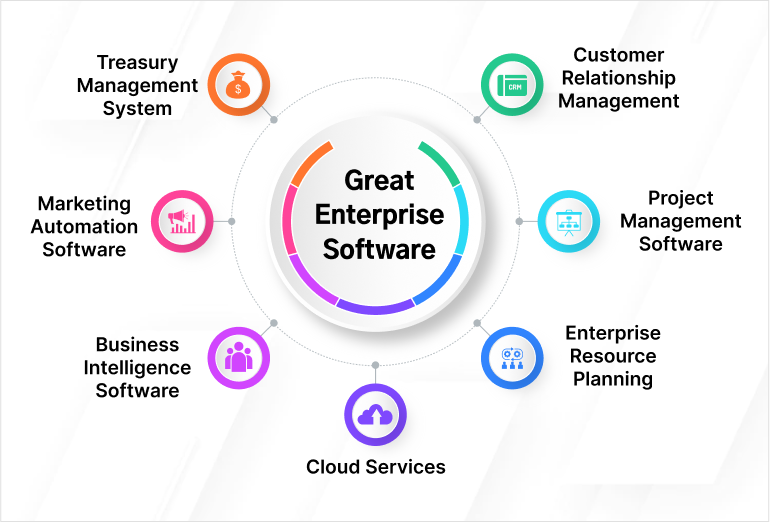
Many businesses, especially smaller ones, view enterprise software as overkill or a cost-prohibitive expense.
If free software, email, and spreadsheets are “good enough,” some users figure that it doesn’t make sense to spend money on enterprise solutions.
But here’s the thing: relying on software that isn’t up to the task can chip away at your bottom line, inhibit growth, and put your business at a competitive disadvantage.
Enterprise software is designed to automate, integrate information, and provide the scalability that companies require today. Such software provides your company with the framework and visibility to enable you to work smarter rather than harder.
If you haven’t yet rolled out enterprise software across your business, here are six ways you may be nickel-and-diming your company without realizing it.
- You’re Wasting Time on Manual Labor
Time is one of your most valuable assets, and many businesses waste a lot of it. Typing the sales figures into spreadsheets by hand, reconciling the books by hand, or constantly moving back and forth between unrelated programs is a time-waster.
These inefficiencies are eliminated when using enterprise software to automate routine tasks. For example:
- A CRM can automatically monitor customer interactions and update the sales pipeline.
- An ERP can synchronize inventory, finance, and supply chain data in real time.
- HR software can automate payroll and compliance monitoring.
Every minute saved is a minute that can be reinvested in strategic activities like product development, customer engagement, or market expansion. Without automation, however, businesses risk moving at a slower pace than their competitors.
- You’re Missing Out on Valuable Insights
Decision-making from incomplete or stale information damages your bottom line. Businesses bogged down by disintegrating spreadsheets or cumbersome reports simply have no idea what’s happening in their business. That makes it harder to spot trends, see trouble coming, or seize opportunities.
Enterprise software comes with powerful analytics and reporting tools. With everything in one location, managers are able to do the following:
- View sales performance by product group or by geographic region.
- Make better predictions about what inventory will be needed.
- Monitor cash flow in real time.
- Measure customer satisfaction and loyalty.
Leveraging these insights, leaders can make data-driven decisions, reducing guesswork and improving outcomes.
- You’re Struggling with Collaboration and Communication
Reliance on email conversations or shared drives for communication can result in misalignment, missed deadlines, and duplicated work.
Enterprise software integrates collaboration elements into processes so workers can collaborate in real-time through status sharing of a project, get automated reminders when they need to do something, or do something else.
- You’re Exposing Yourself to Security Risks
Data breaches and loss of data are issues that can impact businesses of all sizes. Storing sensitive customer or financial information in unsecured spreadsheets or antiquated systems will increase risks of cyberattacks and other issues.
By not adopting enterprise software, your company will leave itself exposed to risks that can undermine trust and result in significant financial losses.
- You’re Limiting Your Growth Potential
Enterprise software is built to grow with your business. Whether you’re adding new product lines, exploring new markets, or expanding your employee count, these systems can scale and stay relevant.
Failing to invest in scalable tools often traps businesses in a cycle of inefficiency, where growth is limited by technology rather than ambition.
- You’re Falling Behind Competitors
Finally, the biggest risk of not using enterprise software is losing your competitive edge. Competitors who adopt modern systems are able to respond faster to market changes, deliver better customer experiences, and operate with lower costs due to efficiency.
As tempting as it may be to keep legacy systems, the price of not embracing enterprise software in a timely manner can quickly add up.
Ineffective time management and bad decisions are just some of the issues you can face by not upgrading to enterprise software.
Enterprise software is no longer just for large businesses. Affordable, cloud-based software now places high-capacity software within reach of businesses of any size.
When you buy these systems, you’re not just buying software—you’re unlocking doors of possibility for efficiency, visibility, and growth.












